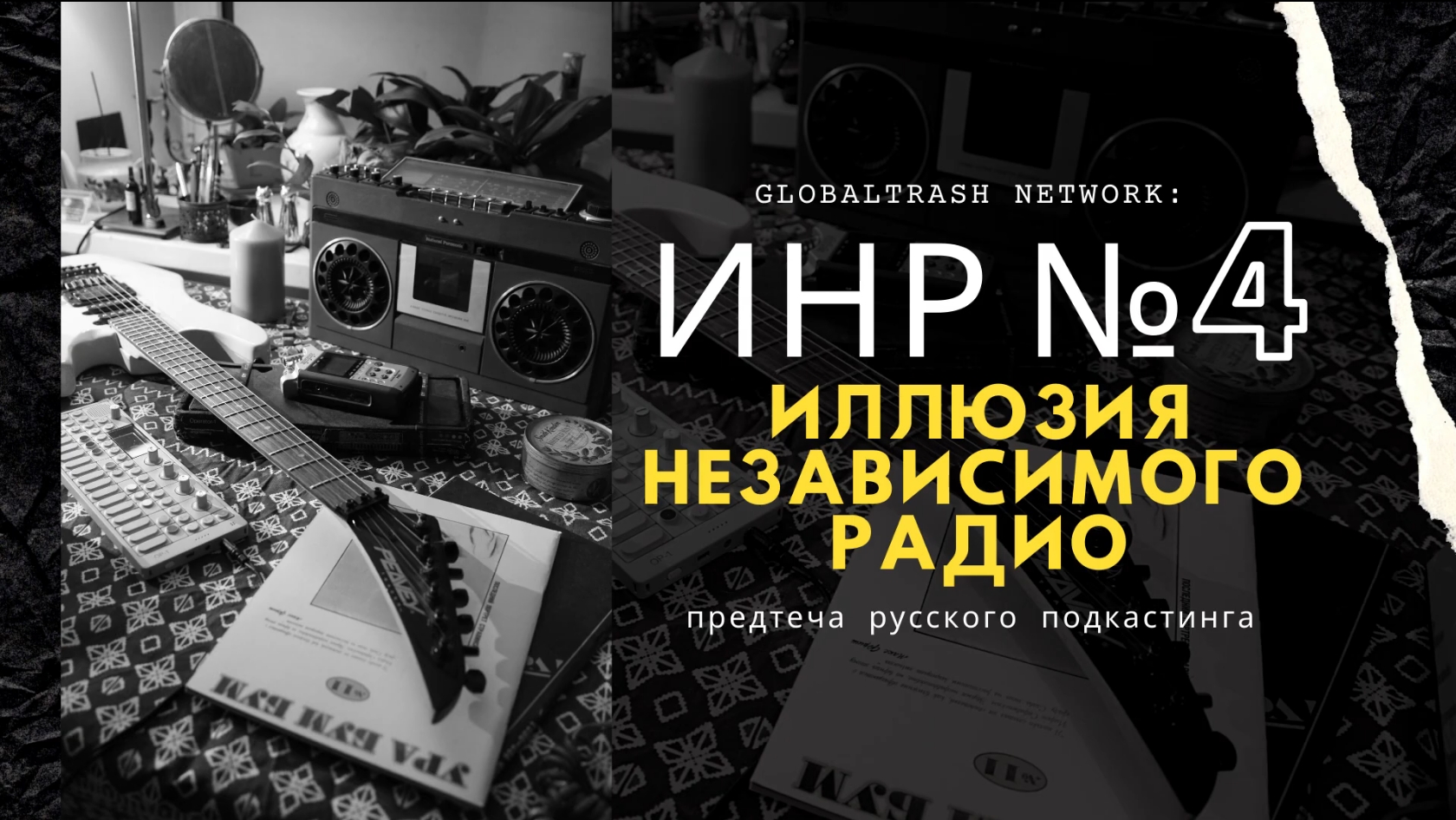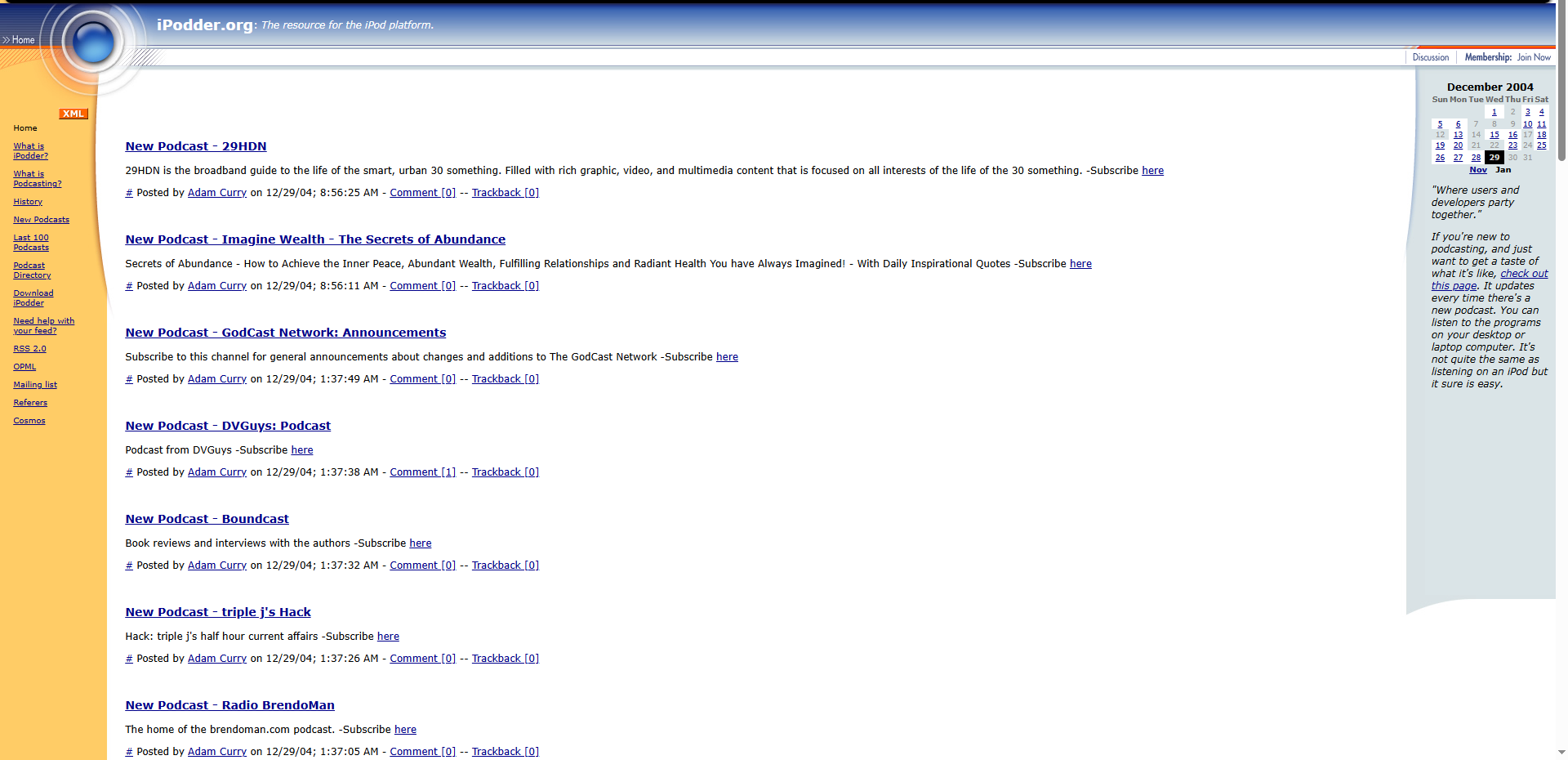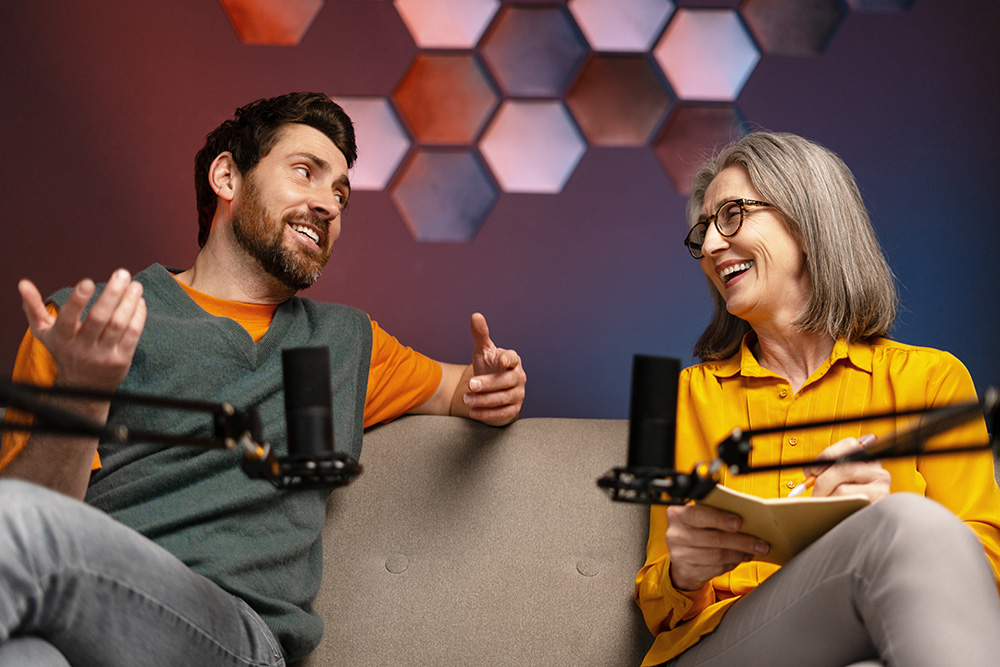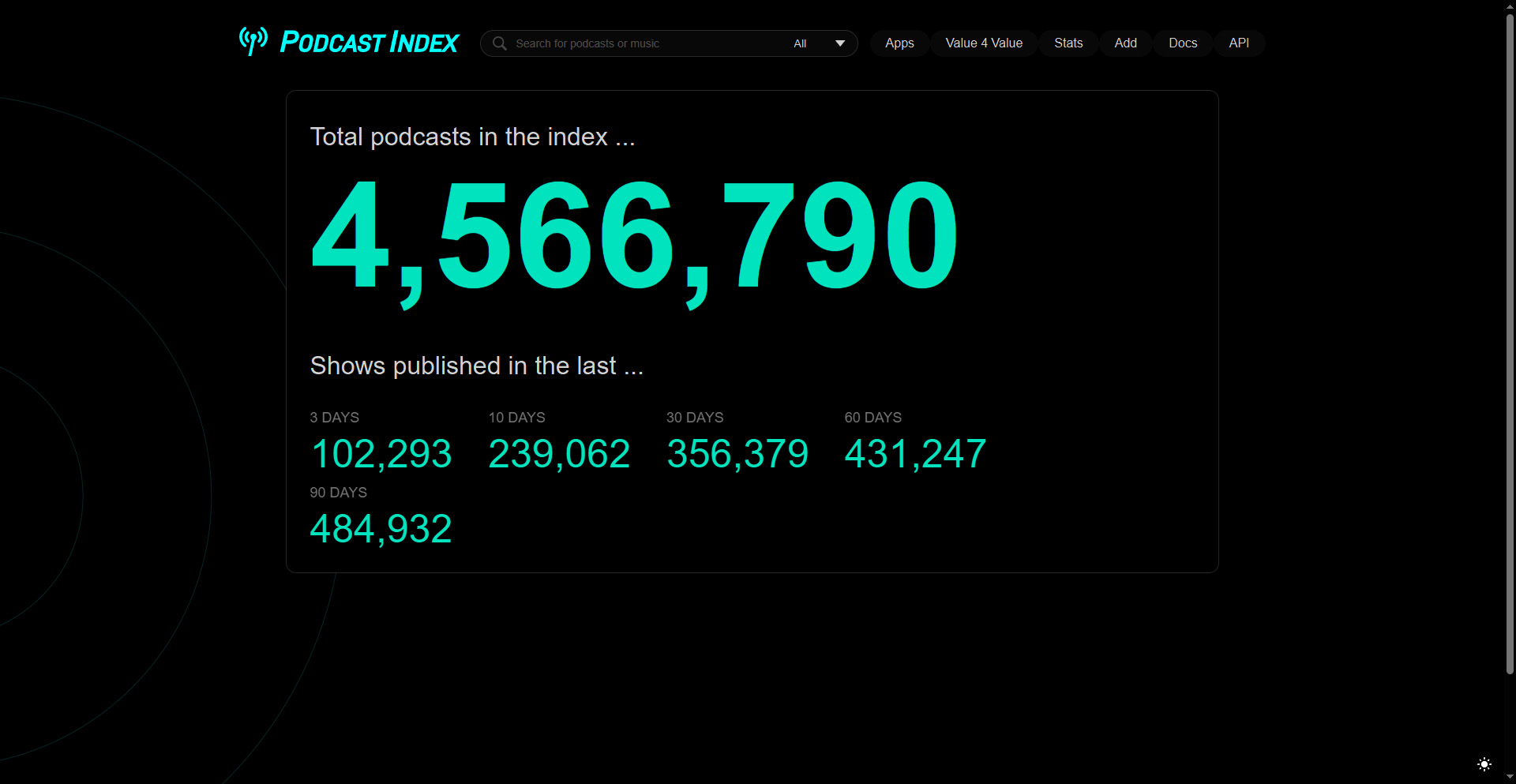Updated: 16/12/2025
We have been listening to podcasts, discussing them, and sharing them with our close ones for quite some time now. Yet how many of us can precisely define a podcast?
It is slowly becoming one of those words whose meaning is fading behind the habitual random use. This is the issue that led you straight to this article. To set a clear definition and discover the ins and outs of this new form of content.
In this article, we will define a podcast, discuss its history, and outline the types and styles of podcasts available.
What is a Podcast? - Definition
A podcast is a compiled collection of audio or video recordings made available for streaming or downloading on the internet. Podcasts are hosted by one or more people who either conduct a conversation with a guest, report the news, or entertain with anecdotes without using traditional broadcasting channels.
What is a Podcast? - Meaning
Example: “Have you listened to that podcast?” or “Subscribe to my podcast, you can find it on Spotify.”
A Brief History of Podcasting
The best way to answer the question “What is a podcast?” is to trace its origins and see how it has evolved over time.
Pre-Podcasting Experiments

Many do not know that podcasting has a Soviet (Russian) past. The first records of pre-recorded audio programs distributed off-air were created in 1989 during the Communist Soviet era by a clandestine publishing organization (Samizdat) called “The Illusion of Independent Radio,” which distributed magnetic tapes and cassettes containing prohibited content. It was a way to evade censorship, and the essence of this era remains in podcasting culture to this day: independent, with very little censorship.
Fun fact: the entire Soviet Bloc experienced this, including my home country, Romania.
Early 2000s – The Foundation
The internet audioblogs emerge. People can share MP3 files and download them manually. In 2001, Dave Winer contributed to the RSS, a web syndication model developed earlier by Ramanthan V Guha, simplifying and improving it.
2004 – The Birth of Podcasting

2004 is seen as the official birth of podcasting, when Adam Curry launched “The Daily Source Code,” the first ever podcast. In the same year, Curry and Winer created the iPodder, which was a software that allowed users to download audio from RSS feeds directly to the iPod.
Mid-2000s – Early Growth
Apple added podcasts to iTunes, which expanded its adoption worldwide. The same year, in July 2005, George W. Bush became a “podcaster” when the White House added an RSS feed on the official White House website, allowing the general public to download the president’s weekly radio announcements.
Late 2000s – Mainstream Adoption
Podcasting becomes mainstream along radio & television. The first networks start to appear, and the sponsorship business starts to take traction.
What is a Podcast’s Purpose?

The main purpose of a podcast is to entertain or inform.
Podcasters want their audience to finish an episode with a fresh takeout so that they come back for more. People tend to listen to podcasts passively while in the car or at work. A podcast, like TV or Radio, is another way to consume information.
What is a Podcast vs a Radio Show?
The biggest difference between podcasts and radio is the way they are distributed. While radio broadcasts on a specific frequency at a specific time, podcasts are streamed and can be accessed on demand. Another key difference between podcasts and radio lies in their potential reach and the degree of control that communication agencies can exert over them.
Podcasts can reach international audiences through internet distribution, while communication agencies and government bodies have minimal control over them.
In contrast, radio broadcasts are geographically limited and subject to regulations imposed by communication agencies and government authorities.
Many radio shows are repurposing their radio programs into podcasts, and this is only natural, since podcasting is set to be the future of radio.
What is a Podcast vs a Podcast Episode?
A podcast is a collection of podcast episodes. They can be organised in series or in an episodic format. Podcasts (shows) can span hundreds of episodes.
The podcast with the most documented episodes is “The Adam Carolla Show” which has over 3000 episodes.
Podcast episodes can be of any length, from 1 minute to even 3 hours or more, and have multiple guests, from one-on-one interviews to full panel discussions.
Many ask “what is a podcast” and use the word “podcast” to refer to both “podcast as in show” and “podcast episodes”.
Audio Podcasts vs Video Podcasts (Vodcasts)
The first-ever video podcast was released in 2003 called Dead End Days, however, it was small in scale and didn’t get wide recognition. One year later, in 2004, Rocketboom launched, considered the first commercially successful video podcast.
While it is widely recognized that podcasts are an audio format, in recent years, the term video podcast has become more common as podcasts have grown in popularity. The inclusion of video podcast-specific features in popular podcast listening platforms such as Spotify and YouTube has validated this trend.
But it still begs the question, what are podcasts? Do video interviews with presidents or politicians, often aired on the BBC or CNN, count as podcasts?
This is precisely where the gray area is, and in my opinion, a video interview to be counted as a podcast must tick the following boxes.
- Must be a video interview.
- The video must be distributed via RSS or, at a minimum, in a streamed or downloadable format.
- An audio version of the video interview must be distributed via an RSS feed.
If a video interview ticks these requirements, you can safely call it a podcast.
AI Podcasts
A relatively new development in the podcast industry is AI-generated podcasts. Although AI podcasts are still in their infancy and experimental, if created ethically, they could become a new way for podcasters to create content.
Podcast Genres
There are 19 main podcast genres in Apple Podcasts, with over 100 subgenres. The most popular genre is, by far comedy.
- Arts
- Business
- Comedy
- Education
- Fiction
- Government
- Health & Fitness
- History
- Kids & Family
- Leisure
- Music
- News
- Religion & Spirituality
- Science
- Society & Culture
- Sports
- Technology
- TV & Film
- True Crime
What Are Some Popular Podcasts?
Over the years, the podcast industry has seen many successful shows across all genres. Some of the most popular podcasts include:
The Joe Rogan Experience

Often ranks #1 on the top Apple Podcast charts. It is a comedy podcast hosted by comedian and TV personality Joe Rogan that features in-depth conversations with celebrity guests across a wide range of fields. The show launched in 2009, and it still runs to this day.
Call Her Daddy
:max_bytes(150000):strip_icc():focal(879x452:881x454)/alex-cooper-facts-022423-2-390a5bb1f15b4aecbd7e1153654ecb8c.jpg)
Hosted by Alex Cooper, it quickly became a cultural phenomenon among young listeners. It features topics about dating, sex, relationships, and young adult life. It started in 2018 and has consistently ranked in the top 100.
Crime Junkie

Crime Junkies is one of the most popular true crime podcasts. Hosted by Ahsley Flowers & Brit Prawat, the show explores real cases such as missing persons, murders, serial killers, and mysterious deaths. It launched in 2017 and has consistently ranked in the top 100 podcasts.
To name a few:
Podcast Statistics

As of 2026, there are over 4.5 million podcasts worldwide, according to Podcast Index and Summapod. According to Summapod, there are 584.1 million listeners worldwide, and the industry's global market value is estimated at $39.63 billion.
What is a podcast - Explained
The answer to “what is a podcast” constantly changes as the industry evolves, but we hope that this article sheds some light on the question.
If you want to learn more about podcasting, especially about “The Future of Podcasting”, listen to this episode from The Pod Files, featuring James Cridland, the person who started one of the first podcasts in the UK.
The Future of Podcasting with James Cridland - Editor of Podnews
What is A Podcast - FAQ
What is a podcast host?
A podcast host can have two different meanings.
- A podcast host is the moderator of a podcast show, also known as a podcaster.
- A podcast host is a company that hosts podcast episodes on its platform and makes them available to multiple podcast players via an RSS feed. Saspod has its own podcast hosting solution.
What is a podcast platform?
Most often, a podcast platform refers to a podcast directory. This is where people can search for and listen to shows. The most popular podcast platforms are Spotify, Apple Podcasts, and YouTube.
What is a podcast RSS feed?
A podcast RSS feed is a protocol for distributing podcast episodes across multiple podcast directories.
What is a podcast app?
A podcast app functions as a podcast directory in mobile form. Some directories are accessible via both a web browser and a mobile app, while others are available exclusively as an app.


Comments
No comments yet!